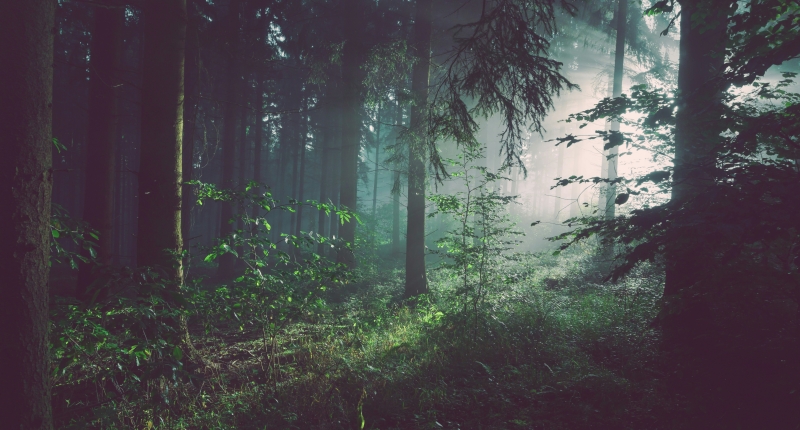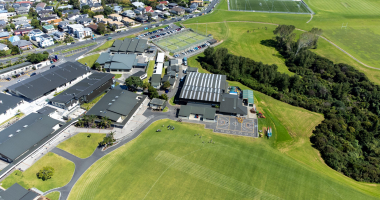Welcome to the fifth feature in this series where we delve into various subjects!
Environmental science, a multidisciplinary field that often gets confused with ecology, is one of the few subjects blending natural and social science which students usually do not come across. No, it’s not just studying a bunch of animals and no, it’s not just observing the health of trees and forests.
In fact, this subject is arguably one of the most practical sciences as it takes several key concepts from a variety of topics and applies them directly to the real world.
What is environmental science?
“What do you actually study in environmental science?”
As the name may suggest, environmental science is concerned with the study of the environment but more specifically, its structures, functions and how it interacts with humans. Or as I like to put it when people ask me: imagine if geography, economics, maths, biology and chemistry had one giant baby, though that would probably make for a horrible definition in dictionaries.
Though environmental science is a unique subject in itself, it is multidisciplinary and draws from many other subjects. This equips students with many tools that can be used to address some of the biggest questions in today’s world, which is the heart of environmental science as a subject.
For instance, how can we meet the needs of a growing population without completely depleting the earth’s natural resources? How can we control invasive species that put a strain on the environment? Or how can a balance be found between urbanisation and protecting the environment? To tackle these issues, a student may use the STEM side of environmental science to assess the feasability of resource management and conservation strategies whilst drawing from the social science side of the subject to analyse potential flow-on effects on people or society
Why study environmental science?
Understand how the world works
By drawing from so many different subjects, environmental science allows students to gain a deeper understanding of how the world functions on both a literal and social level.
From the foundations you build in the natural sciences like biology and chemistry, you gain an understanding of the natural world and why certain natural phenomena occur as you learn about why and how things function.
Taking a jump to social sciences, environmental science can build a deeper understanding of why society is the way it is through topics like population dynamics, demographic transition and urbanisation. This also helps you to build the critical thinking skills to become more aware of modern policies regarding the environment. For example, is subsidising Electric Vehicles to reduce carbon emissions as efficient as it sounds? Environmental science can help you evaluate these tough topics by considering multiple perspectives, such as the biological view on how it impacts the natural world or the economic view on how it impacts households.
Environmental science is an all-in-one package
As mentioned before, environmental science is a multidisciplinary subject. Interestingly, it combines natural and social sciences together which is something you usually don’t find in other subjects. From ecology to urban sprawl, there is truly something from most subjects you can imagine. Whether you are an avid specialist in the natural or social sciences and would like to explore the other side or an all-rounder who enjoys a little bit of everything, environmental science will most definitely be something you can enjoy.
Build a foundation in a wide variety of subjects
Given the nature of environmental science as an all-in-one package, it lets you explore the fundamentals anywhere from chemistry to geography. Therefore, studying environmental science can be an excellent way of getting a taste of what these subjects might be like which may help you deepen your love for subjects you already enjoy or help you find new subjects to be passionate about.
For instance, I was never really big into geography before taking environmental science. But studying environmental science helped me realise there was so much more to geography than just clouds or volcanoes you learn about in junior social studies. This helped me develop a love for human geography in particular which led to take on scholarship geography this year.
The point is, you never really know if you like something until you explore it a little deeper and environmental science can be the subject to give you that push.
What do you learn in environmental science?
Much like psychology which we delved into earlier in this series, environmental science is also typically seen as a “softer” subject and is a less common subject in colleges.
But of course, we can always look to the Advanced Placement (AP) Curriculum where there are many niche subjects not typically offered in the more common curriculums adopted in New Zealand. Like all other AP courses, AP Environmental Science (or APES) was designed to be a rigorous university-level course (with a seemingly never-ending number of units when you study it) that can be self-studied by all college students. Best of all, students all over the world have free access to the full course on Khan Academy.
The AP Environmental Science Course includes:
- The Living World: Ecosystems
- The Living World: Biodiversity
- Populations
- Earth Systems and Resources
- Land and Water Use
- Energy Resource and Consumption
- Atmospheric Pollution
- Aquatic and Terrestrial Pollution
- Global Change
Though environmental science typically garners images of scientists observing leaves or just collecting water samples from the local river, there is so much more. From being a way to explore multiple disciplines to equipping oneself with the tools to tackle global issues, there is something in environmental science for everyone. Though Macleans does not offer opportunities in this field, there are more resources than you can count on the internet which can be accessed in seconds. So whether you’re a seasoned veteran in the natural sciences or a student completely new to anything remotely related to environmental science, consider taking a quick Google search next time you’re on your device and get ready to (as my favourite environmental science teacher would say) think like a mountain and write like a scholar.
20th September, 2024
Written by Aaron Huang, edited by Emma Li
Photography by Sebastian Unrau on Unsplash









